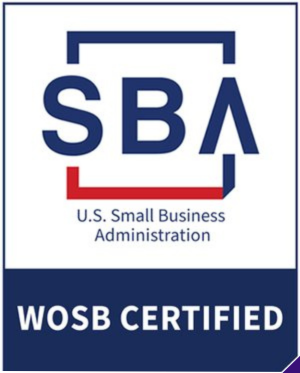Agile and Infrastructure Coaching
Coaching is taking a player where they can't take themselves
ACI provides unique and experienced coaches who utilize a customized approach to guide businesses and teams to solutions that work best for them based on practical experience and 100 years of best practices applied across all frameworks.

Teams, Enterprise and Organizational Change
ACI enables and drives team, organizational, and enterprise change as the process of implementing and managing change within different levels of an organization, ranging from small teams to the entire enterprise. It involves transitioning from the current state to a desired future state, addressing challenges, and driving improvements in areas such as processes, structures, culture, and technology. Team change focuses on implementing change within a specific team or department. Enterprise change refers to change initiatives that impact the entire organization or a significant part of it. Organizational change involves broader transformations that encompass the entire organization. It often addresses strategic objectives, long-term vision, and fundamental shifts in the way the organization operates. Organizational change may include changes in mission and values, leadership styles, business models, and customer-centricity.
Managing team, enterprise, and organizational change effectively is crucial for organizations to adapt, innovate, and thrive in dynamic and competitive environments. By embracing change and implementing it successfully, organizations can drive growth, enhance agility, and improve overall performance.
DevOps and ITIL
ACI enables and drives DevOps and ITIL as two distinct approaches to managing IT operations and software development, each with its own focus and principles. DevOps is a software development methodology that emphasizes collaboration, communication, and integration between development (Dev) and operations (Ops) teams. It aims to streamline the software delivery process, enhance speed and efficiency, and improve the overall quality of software releases. DevOps promotes automation, continuous integration and delivery (CI/CD), and a culture of shared responsibility and accountability among development, operations, and other relevant teams. ITIL (Information Technology Infrastructure Library): ITIL is a framework of best practices for IT service management (ITSM). It provides a set of guidelines and processes for planning, delivering, and supporting IT services within an organization. ITIL focuses on aligning IT services with the needs of the business and aims to improve service quality, customer satisfaction, and overall efficiency. While DevOps and ITIL have different focuses and approaches, they can complement each other in practice. Organizations can adopt DevOps principles and practices while aligning them with ITIL processes to improve collaboration, agility, and service quality. The integration of DevOps and ITIL can help organizations achieve faster, more reliable software delivery while maintaining effective IT service management practices.
Agile Leadership and Digital Transformation
ACI enables and drives Agile Leadership and Digital Transformation as interconnected concepts that enable organizations to navigate the rapidly changing digital landscape and drive successful transformations. Agile leadership is a leadership style and mindset that embraces the principles and values of Agile methodologies. It involves empowering teams, fostering collaboration, and promoting adaptability and continuous improvement. Digital transformation refers to the process of leveraging digital technologies and strategies to reshape business processes, enhance customer experiences, and drive organizational growth and competitiveness. It involves the integration of digital technologies into all aspects of an organization’s operations, including products, services, and internal processes. By embracing Agile leadership principles and practices, organizations can navigate the complexities of digital transformation more effectively. Agile leadership promotes flexibility, collaboration, and adaptability, enabling organizations to respond to market changes, deliver value to customers, and drive successful digital transformations.
Agile Tools Integration
ACI enables and drives Agile tools integration as the process of integrating various software tools and platforms used in Agile project management and development processes. These tools are designed to support Agile principles and practices, facilitate collaboration, and enhance productivity and visibility within Agile teams. The integration of Agile tools streamlines workflows, enhances collaboration, and improves visibility and traceability within Agile teams. It eliminates manual and redundant tasks, reduces information silos, and promotes a unified and transparent view of project progress. Agile tools integration supports the principles of Agile methodologies and helps teams deliver high-quality products or services more efficiently.
Business Agility and Value Stream Mapping
ACI enables and drives business agility as an organization’s ability to respond quickly and effectively to market changes, customer demands, and competitive pressures. It involves adopting a flexible and adaptive mindset and implementing practices that enable organizations to navigate uncertainty and rapidly adjust their strategies, processes, and operations. ACI enables and drives value stream mapping as a visual representation and analysis technique used to identify and optimize the flow of value-adding activities and eliminate waste within a business process. It provides a holistic view of the end-to-end process, highlighting areas of inefficiency, bottlenecks, and opportunities for improvement. Business agility and value stream mapping are complementary approaches that organizations can leverage to achieve operational excellence, deliver value to customers, and foster a culture of continuous improvement. By embracing business agility and employing value stream mapping techniques, organizations can become more responsive, efficient, and competitive in today’s rapidly changing business environment.
SAFe®, LeSS, Kanban, Nexus, Scrum, Scrum at Scale, Lean
ACI enables and drives a variety of scaling networks for Agile teams across organizations. ACI prefers a customized framework based on what the customer needs to help reach their goals. Scaled Agile Framework, Large Scale Scrum, Disciplined Agile, Kanban, Nexus, Scrum, Scrum at Scale, and Lean are all different ways to be able to scale Agile across organizations.
Product Management
ACI enables and drives product management as a discipline that involves the strategic planning, development, and ongoing management of products or services throughout their lifecycle. Product managers are responsible for guiding the vision, strategy, and execution of a product, working closely with cross-functional teams to ensure its success. Product management is a dynamic and multifaceted discipline that requires a blend of strategic thinking, market understanding, and effective collaboration. A successful product manager guides the entire product lifecycle, from ideation to launch and beyond, ensuring that products align with customer needs, achieve business objectives, and deliver value to the market.
IT Business Management
ACI enables and drives IT business management as the discipline and practices involved in effectively managing the strategic planning, operations, and resources of an organization’s IT department. It encompasses the alignment of IT with business objectives, the optimization of IT processes, the management of IT projects and investments, and the governance of IT operations and services.
IT business management involves several key areas:
Strategic planning: Developing an IT strategy that aligns with the organization’s overall business goals and objectives. This includes identifying IT initiatives, prioritizing investments, and defining the roadmap for IT capabilities and services.
IT governance: Establishing frameworks, policies, and processes to ensure effective decision-making, risk management, and compliance within the IT department. This involves defining roles and responsibilities, implementing controls, and monitoring performance to maximize value and minimize risks.
IT operations and service management: Managing the day-to-day operations of IT systems, infrastructure, applications, and services. This includes incident management, problem resolution, change management, service desk support, and service level management to ensure the smooth functioning and availability of IT services.
Project and portfolio management: Planning, executing, and overseeing IT projects to deliver desired outcomes within scope, budget, and timeline. It involves project selection, resource allocation, risk management, and monitoring progress to ensure successful project delivery and alignment with business objectives.
IT financial management: Managing the financial aspects of IT operations, including budgeting, cost allocation, and expenditure control. It involves optimizing resource utilization, assessing the financial impact of IT investments, and providing cost transparency to demonstrate the value of IT services.
By effectively managing IT as a business function, organizations can improve the alignment between IT and business objectives, enhance operational efficiency, optimize resource allocation, mitigate risks, and maximize the value and impact of technology within the organization.
Agile Operations
ACI enables and drives Agile operations as the application of Agile principles and practices within operational processes to improve efficiency, responsiveness, and adaptability. It involves embracing iterative and collaborative approaches to manage and optimize operations, enabling organizations to quickly respond to changing market conditions and customer needs. By adopting Agile Operations, organizations can enhance their operational agility, reduce time to market, improve process efficiency, and better respond to customer demands and market changes. Agile Operations enable organizations to continuously adapt and optimize their operational processes, driving sustainable growth and competitive advantage in dynamic business environments.
Trusted by leading organizations nationwide



















What our clients are saying!

Joshua Kikta
Liberty Mutual Insurance

Elizabeth Shirkey
South State Bank

Ryan Fillman
Digital Management, LLC

Customer Feedback

Customer Feedback

Customer Feedback
LEGAL NAME
Agility Consulting, LLC
CAGE CODE
8PSQ0
DUNS NUMBER
096957889
NAICS CODES
518210, 519130, 541330, 541511, 541512, 541519, 541611, 561110








